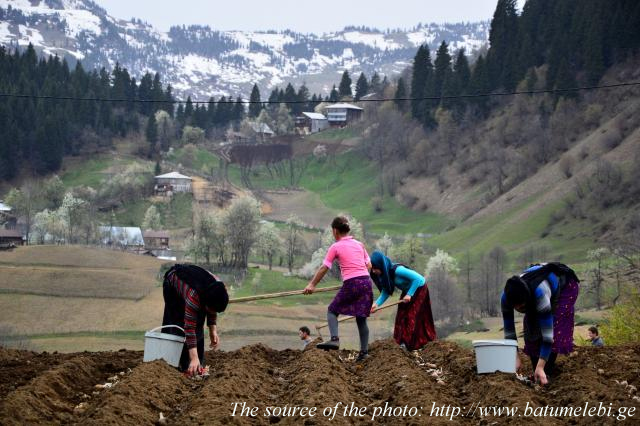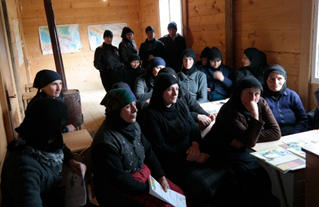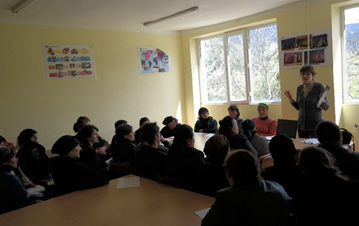Female Farmers in Ajara

“Women in Georgia – Tradition and Contemporaneity” is a short documentary film prepared by ‘Netgazeti’ (online newspaper) about women living in Ghordjomi Community (Khulo Municipality, Ajara). Ghordjomi is one of the largest Muslim communities in Ajara and is known for its early marriage traditions, and other strict rules and attitudes towards women. The film describes the harsh daily routine of the women starting from 6 am in the morning with taking care of the cattle, children, household and the restrictions they face in daily life.
The ALCP AJ programme’s Focus Group Survey and Gender Analysis captured these issues and also noted the consequent effect on the participation of women in the decision-making processes at the community and local governmental levels which is chronically low.
The programme employs a systemic approach in which gender mainstreaming is integral to ensuring equitable impact. To date interventions have included:
- A Memorandum of Understanding with Ajara’s self-governments to cooperate in the gender related issues and to support implementation of the Law on Gender Equality of Georgia.
- Facilitating the appointment of Gender Advisors in all five municipalities of Ajara
- Organized training for the Advisors on how to increase women participation in community meetings. Following the training, Gender Advisors worked with Village Representatives and as a result the attendance of women in the community meetings has increased by 10-15 %.
As the follow up to these activities, the programme will further ensure women’s access to decision-making and public goods and information by establishing a municipal service the ‘Women’s Room’ in the municipalities of Ajara region.
Another constraint captured by the Gender Analysis is that female farmers lack information regarding livestock husbandry, again due to the several cultural, ethnic and social constraints. Programme facilitated training on cow’s reproduction cycle for the female SSLPs in eight villages of the five municipalities of Ajara region, where intervention of the improved bull services is on place.
The main subject of the training was a heat detection followed by other issues concerning breeding, veterinary, nutrition, etc. This type of information is important for women, as they are mainly responsible for identifying the right time for cows to breed, however they feel uncomfortable to ask questions to the vets who are mostly men. Therefore, the female experienced vet and AI practitioner, Nana Balanchivadze was invited to carry out the trainings.
The female farmers expressed their interest and emphasized necessity of the female vets’ involvement in the veterinary matters. The participants were mostly interested in the reproduction cycle, symptoms and treatment of the cattle diseases. Overall, 108 women were trained. In addition, 42 men also asked trainer for advice on breeding and veterinary.


